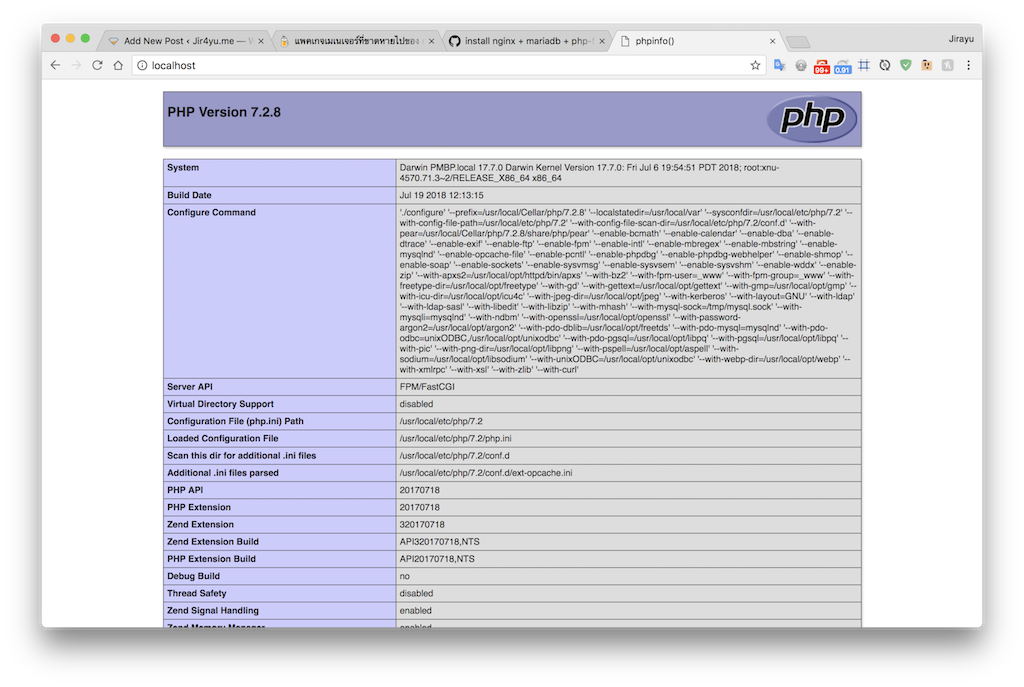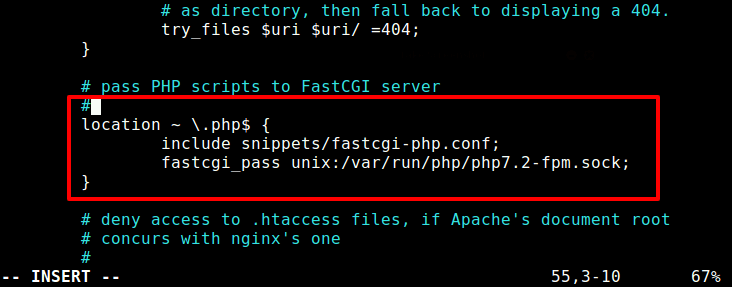

This is intended only for testing, and to make the installation To log into MariaDB without having to have a user account created for Root user without the proper authorisation.īy default, a MariaDB installation has an anonymous user, allowing anyone
#Phpmyadmin nginx mariadb password
Setting the root password ensures that nobody can log into the MariaDB OK, successfully used password, moving on. You haven't set the root password yet, the password will be blank,Įnter current password for root ( enter for none ): In order to log into MariaDB to secure it, we'll need the current SERVERS IN PRODUCTION USE! PLEASE READ EACH STEP CAREFULLY!

NOTE: RUNNING ALL PARTS OF THIS SCRIPT IS RECOMMENDED FOR ALL MariaDB Response to the following prompts on your server like below: Sudo systemctl enable mariadb Or if you still wish to use MySQL as your database, type the below command to install:īy default MariaDB/MySQL has no root password and anyone can intrude into your database, so run the below script and follow on screen instruction to secure it: sudo mysql_secure_installation Starting MariaDB service and making it persistent even when system reboots: If you would like to user MariaDB as your database, type the below command to install: Now starting Nginx service and making it persistent even when system reboots:
#Phpmyadmin nginx mariadb install
Sudo dnf -y install nginx nginx-all-modules Type the following command to install Nginx web server: Sudo dnf -y install sudo dnf -y install php php-common php-process php-xmlrpc php-xml php-soap php-snmp php-recode php-bcmath php-cli php-dba php-dbg php-mbstring php-odbc php-pecl-apcu-devel php-pecl-zip php-pgsql php-pecl-apcu php-pear php-pdo php-opcache php-devel php-embedded php-enchant php-gd php-fpm php-gmp php-intl php-ldap php-json php-mysqlnd php-pdo php-gd php-mbstring zip unzip tar wget You can install latest PHP and its commonly used extensions with the below command: Sudo subscription-manager repos -enable "codeready-builder-for-rhel-8-$-rpms" If you are on RHEL 8, execute the following command as well: Sudo dnf config-manager -set-enabled PowerTools It is always recommended to add extra packages for enterprise Linux on your fresh CentOS/RHEL server: Sudo timedatectl set-timezone Asia/Karachi You can correct your server timezone by typing the following command but make sure you replace Asia/Karachi with yours You will need one (physical or virtual) machine installed with CentOS, or RHEL 8 Linux having sudo non-root user privileges It is now recommended to use dnf for installing packages but if you still wish to use yum you can use it. Note: With CentOS, RHEL 8 release, yum command has been replaced with dnf and in near future yum package manager will be discontinued.


 0 kommentar(er)
0 kommentar(er)
